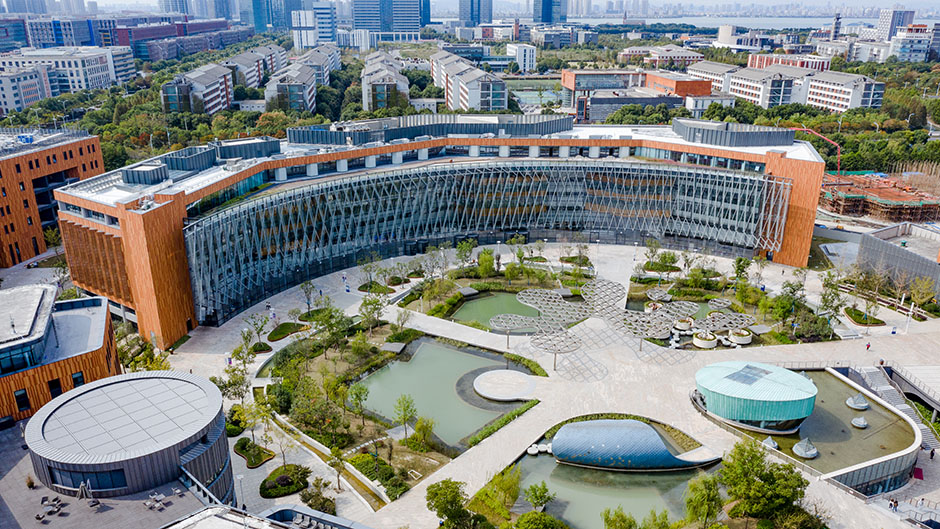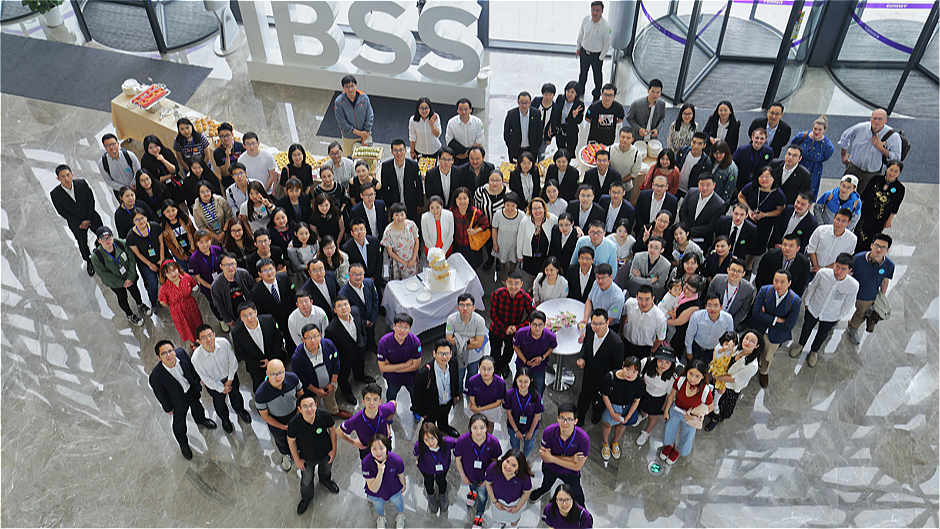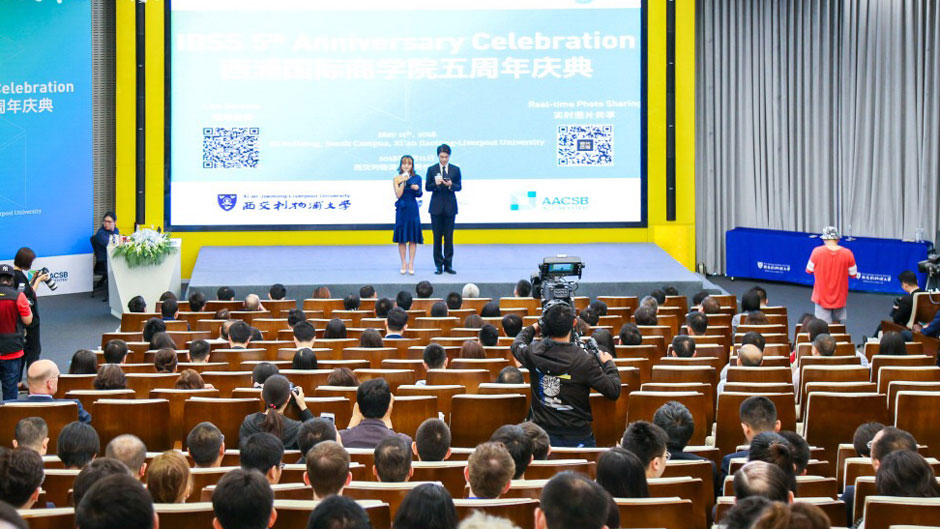02 Nov 2021
An international conference to promote the UN’s Principles of Responsible Management Education (PRME) was held October 19-21 at Xi'an Jiaotong-Liverpool University.
The 8th Responsible Management Education Research Conference at the University’s International Business School Suzhou aimed to raise awareness of the UN's 17 Sustainable Development Goals. Its focus was the first SDG, to eliminate poverty everywhere.
The conference was held in China for the first time, on the heels of the country’s successful completion of its national five-year poverty alleviation plan in 2020.

One of the keynote speakers, Professor Stuart L. Hart of the Enterprise for a Sustainable World and the University of Vermont, said that business education must fundamentally change. In the last few decades, MBA programmes have focused on shareholder profits to the detriment of other interests, he said.
“If we are to realise the possibility of a sustainable world, we must creatively destroy business education and reinvent it,” Professor Hart said.
He noted that business schools have created specialised centres, institutes, research programmes and elective courses to address sustainable and responsible management. However, this content is not embedded into the core of the curriculum and programme, he said.
Instead, MBA programmes should get rid of outdated content to make room for topics critical for the 21st century like the Sustainable Development Goals, circular economies and poverty inequality, he said.
The other keynote speaker, Violeta Bulc is the former Deputy Prime Minister of Slovenia and was the Commissioner for Transport of the European Union from 2014-2020.
Dr Xuanwei Cao of IBSS and chair of the conference said that IBSS’s educational development was one of the reasons why XJTLU was chosen to host the conference.
In 2020, IBSS became one of just over 100 business schools with a "Triple Crown" of accreditations: AACSB (Association to Advance Collegiate Schools of Business), EQUIS (EFMD Quality Improvement System) and AMBA & BGA (Association of MBAs and the Business Graduates Association).

Dr Cao said: “Courses on corporate ethics, corporate social responsibility and sustainability are emphasised in the accreditations, as well as the positive social impact on local communities and companies.”
According to Dr Cao, companies, universities and business schools should make changes in light of China’s goals to peak carbon emissions by 2030 and achieve carbon neutral by 2060.
“Whether it’s theory or practice, we must not lag behind.”

Education on sustainability and corporate social responsibility is indispensable to business schools, Dr Cao said.
“Business and management studies are rooted in social development, and the objects—companies—are constantly changing. So, researchers and educators must never disregard the dynamics of society and enterprise. Business education must focus on solving the major challenges of our time.”
Innovation in business education is vital, he said.
“We often refer to business school graduates as 'future leaders' and 'next-generation managers'. To help graduates adapt to and actively participate in the marked transformation of sustainable development, we should start by changing education.
“We need to empower our students with a new way of thinking, sense of responsibility, interdisciplinary knowledge and communication skills.”
IBSS is ahead of the curve with its development strategy, Dr Cao said.
“We have integrated courses related to ethics, responsibility and sustainability into the curriculum. This aligns with the current trends in the development and transformation of business schools across the world.
“We are pleased to see that more business schools in China start to explore teaching corporate social responsibility and sustainable development. We also hope that the conference has promoted communication between scholars in and outside China on education and research.”

Dr Ellen Touchstone, Associate Dean for Responsible and Sustainable Business Education at IBSS, said the event received support from PRME Anti-poverty Working Group and PRME Regional Chapter DACH (Germany, Austria and Switzerland).
IBSS will donate all registration fees to NPO-GreenLife, a non-profit organisation dedicated to curbing desertification in Northwestern China and improving lives through economic development. The donation is part of IBSS's carbon neutral strategy.
By Qiuchen Hu
Translated by Xiangyin Han
Photo of Dr Cao by Xiaoxi Zhao
Edited by Tamara Kaup
02 Nov 2021
RELATED NEWS

IBSS becomes youngest business school to acquire EQUIS accreditation
International Business School Suzhou at Xian Jiaotong-Liverpool University has gained EQUIS accreditation in June 2018 from the European Foundation for Manag...
Learn more

IBSS Receives Official Accreditation CPA Australia
IBSS's reputation as a leading business school has been further demonstrated with an official accreditation from CPA Australia. CPA Australia is one of th...
Learn more

IBSS celebrates its 5th Anniversary
International Business School Suzhou at Xi’an Jiaotong-Liverpool University has celebrated its 5th Anniversary in Suzhou. Almost 200 guests from industry, c...
Learn more







